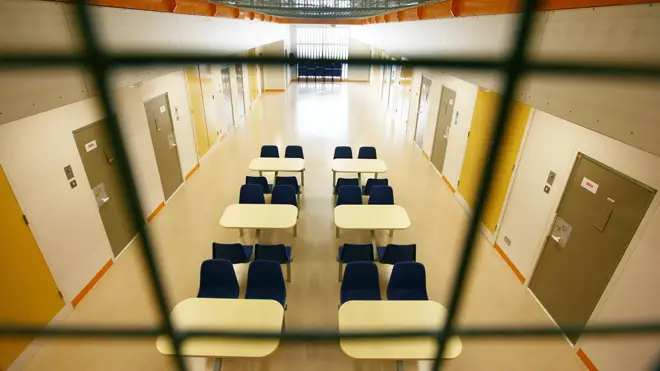
Matthew Wright 7am - 10am
9 April 2020, 16:03

Hundreds of people including those with underlying health conditions could be illegally detained in immigration detention centres amid outbreaks of coronavirus, it has been claimed.
LBC can exclusively reveal that there has been a confirmed case of COVID-19 at Brook House immigration detention centre near Gatwick Airport.
At least one person detained there has received a shielding letter from the NHS saying they should lock themselves away for 12 weeks.
The Government is asking them to protect themselves but they are being kept in conditions which could facilitate “explosive transmission” according to one expert epidemiologist.
Lawyers have argued that many such people are currently being detained illegally.
In order for detention to be legal, the Home Office must consider whether there is a realistic prospect of the individual being removed within a reasonable period. The Home Office itself admits that there are some 49 countries to which deportation is currently impossible because of the worldwide coronavirus lockdown.
Two weeks ago, the Home Office was taken to the High Court by lawyers acting for detainees in positions like this, asking for them to be released.
The court sided with the Home Office, but only after they promised to very quickly review the cases of the most vulnerable people. They said it would be done within a week.
A few hundred people have been released from detention as a result of the case.
The same lawyers have now written a letter, shared exclusively with LBC, which claims the Home Office has not kept its promises, and threatens further legal action.
At least 22 people with underlying conditions such as severe asthma, kidney disease and diabetes have not had their cases reviewed and remain in detention.
Leo is 30 years old, and is being kept in detention at Brook House pending his removal to Zimbabwe.
But Zimbabwe is one of the 49 countries to which there is no immediate prospect of removal. Leo suffers from asthma, and is now in fear for his life, after detainees were given a letter confirming a case of COVID-19 in the centre.
“If deportation isn’t imminent, what’s the point in keeping people here?” Leo asks in an interview from his cell in Brook House.
READ MORE: The latest coronavirus updates LIVE
“The definition of removal centres is to remove people. And no one can deport us because the borders are shut. This lockdown can go on for another 5 months. It could go on for another year. We don’t know.”
He says that he is now too scared to sleep: “I can’t shield myself in here. I still have to go and get my food. I still have to use the shower. I’m terrified.”
Bella Sankey is the Director of charity Detention Action, who have brought the case against the Home Office.
She told LBC: “Even in the good times the majority of the people held in these centres are released back into the community but especially during a global pandemic, the idea that the Home Office can operate any sort of workable deportation system in these times is really for the birds.
"It's disheartening that they haven’t woken up to that yet and taken measures to make sure this pandemic doesn’t spread even further."
She called for all the detainees to be released, saying "that’s what is happening in Spain and in other European countries."
"The Home Office is out of step in still seeking to prioritise immigration enforcement.”
Listen & subscribe: Global Player | Apple Podcasts | Google Podcasts | Spotify
“We’ve heard horrifying accounts that people don’t have access to soap, sanitiser, that detention centres are not clean - people are being kept in conditions that are not right for this situation.”
The Home Office said in a statement: “The High Court has ruled our approach to detention and coronavirus sensible, and we have robust measures in place to deal with any cases based on the latest guidance from Public Health England.
“The public expects that we maintain law and order and keep them safe from high-harm individuals, which is why the vast majority of those currently in detention are foreign national offenders.”